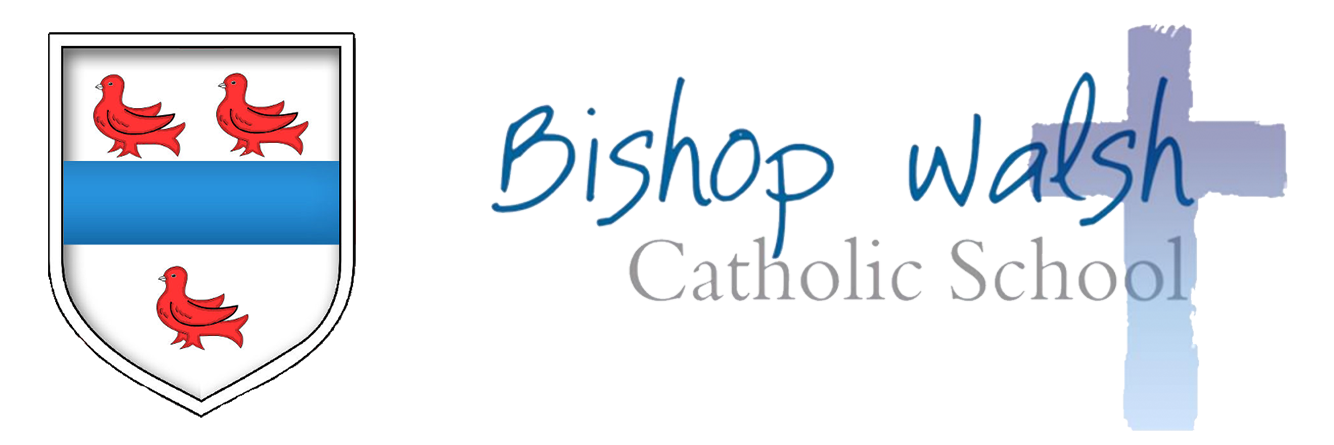Teaching & Learning
Religious Education
KS3
Intent and Knowledge Entitlement:
Pupils will explore the ‘Big questions’ of life, exploring belief and practice while being encouraged to delve deeper into their own faith journey.
Skills Entitlement:
Pupils will develop their knowledge and understanding of the Catholic faith. They will develop the skills of evaluation and know how to structure an argument using evidence and differing viewpoints.
KS4
Intent and Knowledge Entitlement:
In Key Stage 4, students are following the Eduqas (Route B) GCSE course. This is separated into 3 components.
Component One: Foundational Catholic Theology is separated into two themes, the first focusing on Origins and Meaning. Students will be answering three fundamental questions; what are the origins of the universe? What are the origins of human life? What is the value of human life? Through this study, students will examine the creation story of Genesis, Hawkins’ theory on the Big Bang, Evolution, as well as religious and non-religious viewpoints on issues linked to the Sanctity of life. The second theme; Good and Evil focuses on the questions: Where does evil come from? What does it mean to call God good? How can an omnipotent, benevolent God allow human suffering? This study focuses on the problem of evil, the goodness of God and His creation and the problem of free will.
Component 2: Applied Catholic Theology. This component is separated into two themes; the first focusing on life and death. Students will be answering three fundamental questions; what is the meaning of death? Is Euthanasia morally acceptable? What happens after death? Through this study, students will examine Catholic teachings on assisted suicide, secular beliefs on Euthanasia, palliative care and religious and non- religious teachings on life after death. The second theme; Sin and forgiveness focuses on the questions: what is the difference between illegal and immoral? Should serious criminals be executed? How can a forgiving God punish people in hell? Students will gain insight into these issues through a study of absolutist morality, Bible teaching on forgiveness and punishment and different secular theories of punishment.
The third component of the GCSE is a study of Judaism. Students will explore and study the key beliefs and practices of Judaism including festivals, ceremonies, family life and worship.
Skills Entitlement:
Pupils will develop their knowledge and understanding of religious and non-religious approaches and arguments.
The GCSE exam requires students to recall and use keywords, to be able to describe different beliefs and concepts and explain different religious ideas, teachings, and concepts. Pupils need to be able to give more than one religious view and consider non-religious ideas. Pupils will also need to confidently evaluate in their work, by examining different arguments and coming to an informed judgement.
Parents have the legal right to withdraw their son or daughter from Religious Education (RE) should they wish to do so. Any parent considering withdrawal is encouraged to contact the school to discuss their decision in advance. Such discussions allow the school to explain the aims and content of the RE curriculum, which is central to the ethos and values of our Catholic community. If a child is withdrawn from RE lessons, parents are responsible for making appropriate arrangements for their child during this time, including supervision, as the school is not required to provide alternative teaching or activities.

